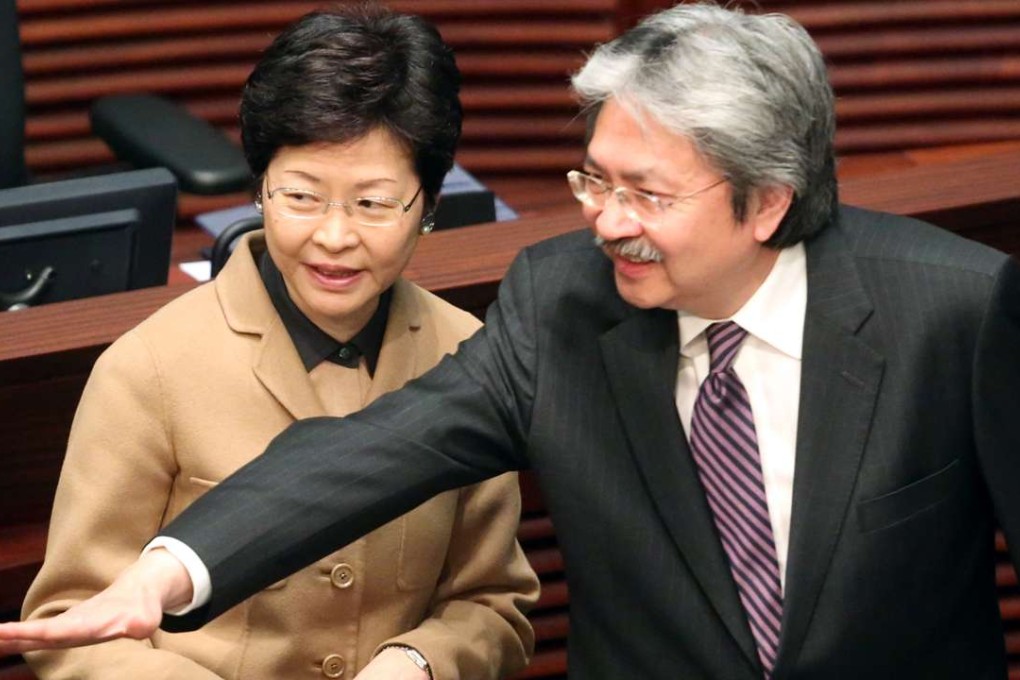Opinion | Carrie Lam may be Beijing’s choice, but Hong Kong still needs a fair leadership race
Gary Cheung says the effusive support from pro-Beijing papers proves Lam has the backing of the central leadership, but John Tsang’s popularity reflects the public desire for a change of style

Wang’s remarks, made to the pro-Beijing Bauhinia magazine last month, were viewed as Beijing’s hint that it is not ready to show its hand on its preferred choice in the chief executive race, igniting hope among some Hongkongers that there would be free competition.
Watch: Carrie Lam announces bid for chief executive
Why Carrie Lam is Beijing’s real preference for chief executive
Watch: John Tsang vows to restore hope to Hong Kong
While Ta Kung Pao ran a 620-word article, Wen Wei Po had a 735-word report on page 13 on December 13, and then devoted half of page 15 on January 22 to Tsang’s declaration to run for Hong Kong’s top job.
Pro-Beijing papers’ preference for Lam can be explained by the liaison office’s instructions to their senior editors, two weeks ago, to “gradually devote more extensive coverage” to Lam, who is Beijing’s preferred candidate. Some pro-establishment figures cited those newspapers’ blessing for Lam as evidence that Beijing favours her.
